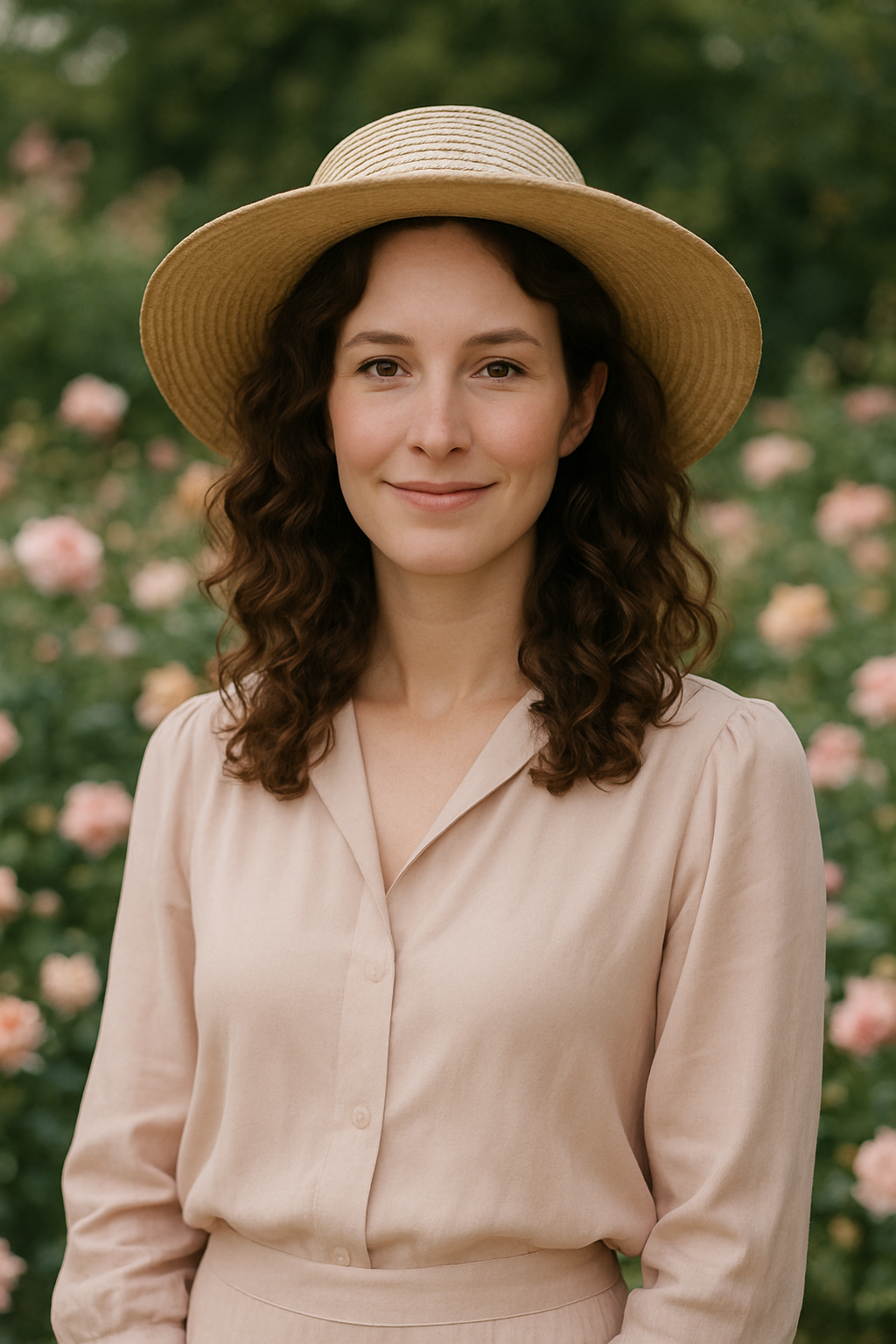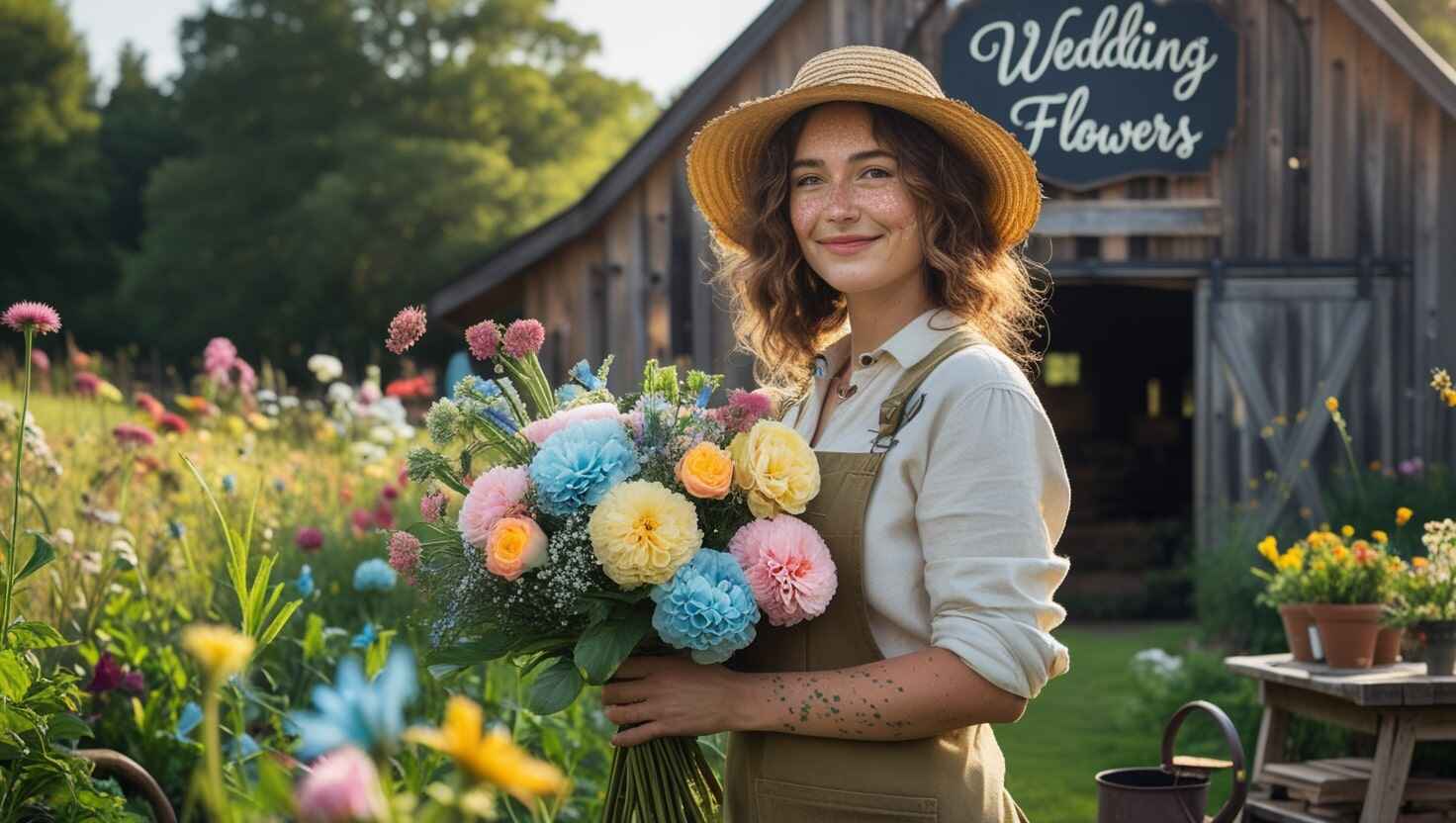
There’s something magical about watching a bride walk down the aisle holding a bouquet of flowers you grew yourself. As a flower farmer and lifelong garden romantic, I still remember the first time I delivered blooms for a wedding it was just a backyard affair but the way the bride’s eyes lit up when she saw her bouquet? Unforgettable.
If you’ve ever wondered whether you can grow and design wedding flowers from your own garden, you’re not alone. This post is for you whether you’re a hobby gardener dreaming of bridal blooms, or a budding wedding farmer-florist exploring your place in the wedding industry.
What Is a Wedding Farmer-Florist?
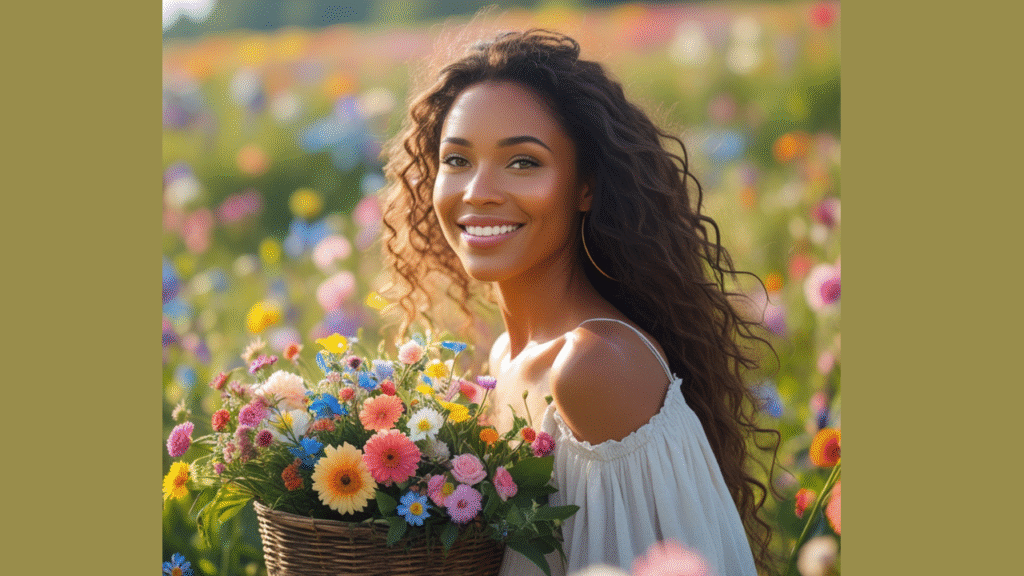
A wedding farmer-florist is someone who both grows and arranges flowers specifically for weddings. Unlike traditional florists who source flowers from wholesalers or overseas, farmer-florists cultivate their own seasonal blooms right from their flower fields, gardens or small farms.
It’s an intimate, sustainable and incredibly rewarding approach to floristry.
How It’s Different from Traditional Wedding Floristry:
- Farm-grown, seasonal flowers rather than imports
- Harvest-to-bouquet process handled entirely by the same person
- Unique, garden-style arrangements that reflect the rhythm of the seasons
- Closer relationship with couples and more personalized services
Why Offer Wedding Flowers as a Flower Farmer?
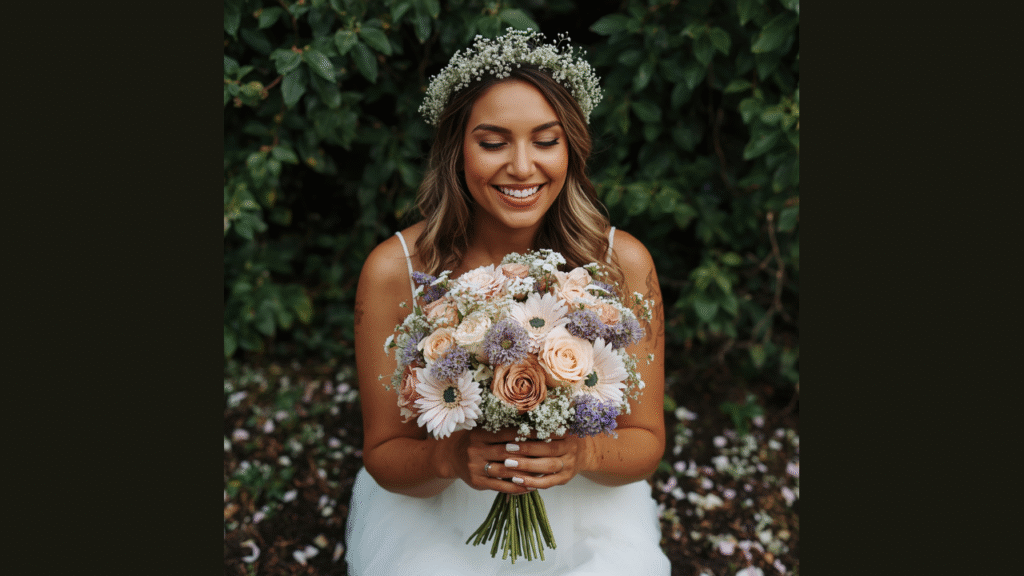
From a personal and business perspective, weddings are one of the most profitable and fulfilling parts of being a flower farmer. Here’s why:
| Reason | Why It Matters |
|---|---|
| Emotional impact | You’re part of someone’s most meaningful day |
| Financial gain | Weddings can generate high returns per bouquet |
| Creative freedom | Couples often want natural, loose, romantic styles |
| Seasonal synergy | You grow with the seasons — just like wedding trends |
The Joy of Growing Your Own Wedding Flowers
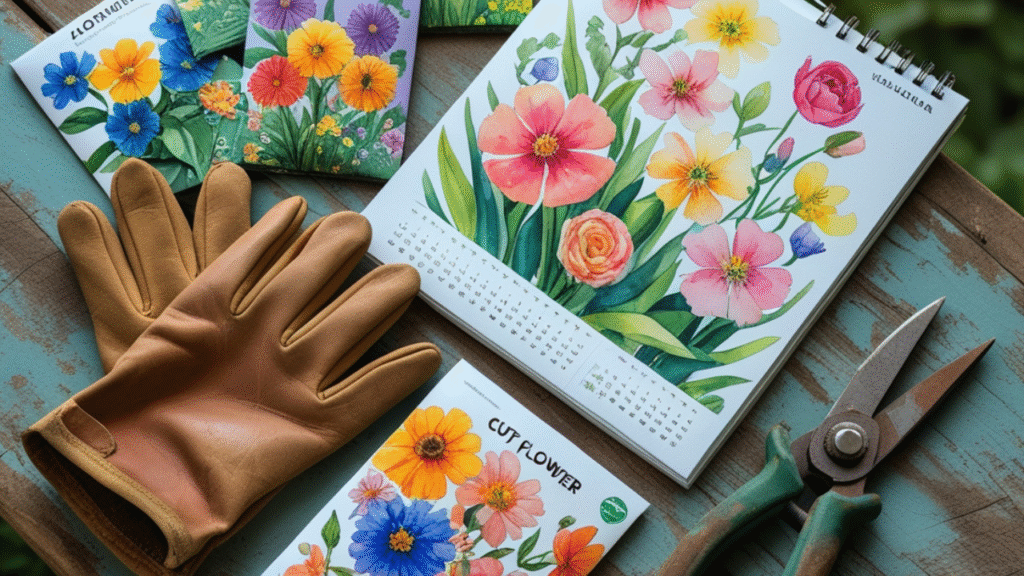
If you’ve ever cut an armful of dahlias or lisianthus and felt that spark of pride imagine turning those stems into an actual bridal bouquet.
Here’s how you can start planning your wedding flower patch:
Best Flowers to Grow for Weddings:
(These are staples in my own garden for bridal work.)
| Flower | Why It’s Great for Weddings |
|---|---|
| Zinnias | Vibrant colors, great for casual summer weddings |
| Dahlias | Stunning focal blooms, late-season drama |
| Lisianthus | Rose-like elegance, long vase life |
| Cosmos | Soft, airy texture for whimsical bouquets |
| Snapdragons | Vertical structure, adds movement |
| Queen Anne’s Lace | Filler magic , delicate & vintage |
Designing Wedding Bouquets From Your Garden
Here’s where the real magic happens — turning your garden bounty into beautiful, bridal-worthy arrangements.
Floral Design Tips for Farmer-Florists
1. Stick with a color palette
Grow flowers in white, blush, peach, dusty rose, and soft yellows these are wedding favorites.
2. Harvest early morning
Cut flowers when they’re fully hydrated for the best vase life.
3. Stage your blooms
Grow early, mid and late-season flowers to have options all season long.
4. Design garden-style
Let your bouquets feel natural, flowing and a little wild couples love that now.
A Peek Into My First Wedding as a Farmer-Florist
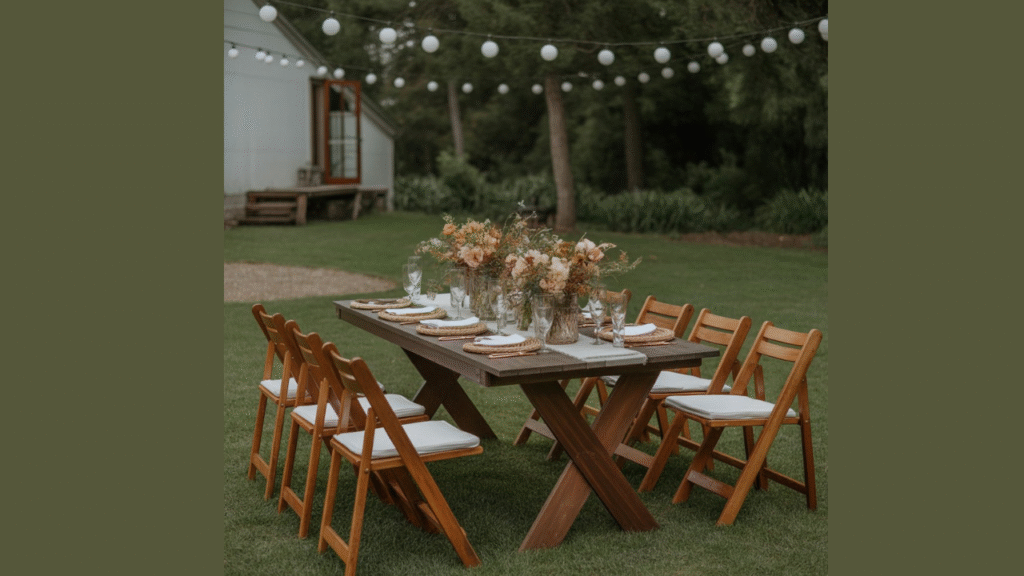
Let me tell you about Emma & Caleb. It was a September backyard wedding under a canopy of string lights. I had grown heirloom zinnias, lemon basil, lisianthus and a whole bed of cosmos just for this day.
I spent the night before arranging their bridal bouquet and centerpieces, all while the scent of basil and rain-soaked dahlias filled the air. I was exhausted… but I felt like I had just bottled up my entire season of hard work into something beautiful.
That wedding made me realize: I wasn’t just growing flowers I was growing memories.
Tips for Beginner Wedding Farmer-Florists
Starting out? Here are lessons I learned the hard way:
1} Start Small
Offer flowers for just one or two weddings your first year. Try friends or family first.
2} Practice Your Timing
Wedding flowers need to be at peak bloom the week of the event. Use succession planting to stagger blooms.
3} Keep It Simple
Stick to 4–6 flower types per wedding. Avoid complicated installs like arches at first.
4} Create a Booking System
Use a form on your website to take wedding inquiries. Ask for date, location, color palette and budget.
5} Set Boundaries
Only take weddings that fit your season and values. You don’t have to say yes to everything.
How Much Should You Grow for a Wedding?
Here’s a basic estimate to help you plan:
| Wedding Item | Stems Needed | Notes |
|---|---|---|
| Bridal bouquet | 25–35 stems | Include focal, filler, and greenery |
| Bridesmaid bouquets | 15–20 stems each | Simpler versions of bridal |
| Boutonnières | 3–5 stems each | Small and delicate |
| Centerpieces | 15–25 stems per table | Mason jars or compotes work great |
| Arch/Install | 100+ stems | Use hardy flowers that won’t wilt |
Marketing Yourself as a Wedding Farmer-Florist
If you’re serious about offering wedding flowers:
- Take good photos of your bouquets and field
- Create a simple website or Instagram with pricing examples
- List your available months (e.g., May–October weddings only)
- Collaborate with local photographers on styled shoots
- Network with wedding planners or venues
Let your brand reflect your unique garden-grown aesthetic not everything needs to be polished. Couples love seeing messy hands and flower-filled baskets.
FAQs About Being a Wedding Farmer-Florist
Can I grow all the flowers for a full wedding myself?
Yes but it requires planning, experience and backup stems. Start small and build confidence.
What if my flowers don’t bloom on time?
Have backup growers you can source from locally or grow more than needed for flexibility.
Do I need a florist license?
In most U.S. states, no license is required unless you’re selling wholesale or importing.
How do I store flowers before the wedding?
Use clean buckets, cool storage (like a garage) and harvest 2–3 days before the event.
How do I price wedding flowers?
Factor in seed costs, labor, time, design, travel and harvest. Many farmer-florists use a flat package model (e.g., “$1,000 for elopement florals”).
Final Thoughts from Flora
Becoming a wedding farmer-florist is more than a business decision it’s a lifestyle built around beauty, timing, and meaning. You don’t need acres of land or years of experience to get started. Just a patch of flowers, a desire to learn and the heart to create something special for someone’s most important day.
I hope this guide has planted the seeds of inspiration in you.
If you’re dreaming of arranging your first bouquet, I’ll be cheering you on from my garden.
Until then,
Flora Lane

